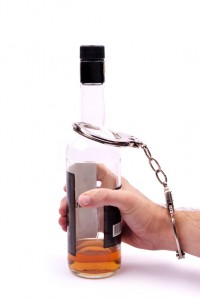 “What is the difference between addiction, dependency, and abuse?”
“What is the difference between addiction, dependency, and abuse?”
A great question, with a complicated answer, which I’ll try (perhaps in vain) to simplify.
Addiction is mostly a descriptive term — commonly applied (and misapplied) to a host of behaviors that share three characteristics:
- Compulsion
- Loss of control, and
- Continued use despite adverse consequences.
It’s broad enough that it can be used to describe substance use, or other activities (gambling, sex).
Since the revision of the diagnostic manual, abuse and dependence have more formal meanings. For ‘substance abuse’, from DSM-IV:
- Recurrent substance use resulting in a failure to fulfill major role obligations at work, school, or home (such as repeated absences or poor work performance related to substance use; substance-related absences, suspensions, or expulsions from school; or neglect of children or household).
- Recurrent substance use in situations in which it is physically hazardous (such as driving an automobile or operating a machine when impaired by substance use)
- Recurrent substance-related legal problems (such as arrests for substance related disorderly conduct)
- Continued substance use despite having persistent or recurrent social or interpersonal problems caused or exacerbated by the effects of the substance (for example, arguments with spouse about consequences of intoxication and physical fights).
And substance dependence:
- Tolerance, as defined by either of the following: (a) A need for markedly increased amounts of the substance to achieve intoxication or the desired effect or (b) Markedly diminished effect with continued use of the same amount of the substance.
- Withdrawal, as manifested by either of the following: (a) The characteristic withdrawal syndrome for the substance or (b) The same (or closely related) substance is taken to relieve or avoid withdrawal symptoms.
- The substance is often taken in larger amounts or over a longer period than intended.
- There is a persistent desire or unsuccessful efforts to cut down or control substance use.
- A great deal of time is spent in activities necessary to obtain the substance, use the substance, or recover from its effects.
- Important social, occupational, or recreational activities are given up or reduced because of substance use.
- The substance use is continued despite knowledge of having a persistent physical or psychological problem that is likely to have been caused or exacerbated by the substance (for example, current cocaine use despite recognition of cocaine-induced depression or continued drinking despite recognition that an ulcer was made worse by alcohol consumption).
When most people refer to alcohol or heroin addiction, they generally mean dependence. Dependence and abuse often go hand in hand, and you’ll see them together in a medical record.
The definitions will no doubt continue to change. One issue is that people who take certain prescription meds may experience tolerance and withdrawal without any of the other symptoms. Are they dependent? Most psychiatrists would argue they aren’t.
As a judge once put it: it was clear that psychiatrists get together and define various disorders, and a few years afterwards, they get together again and redefine them. Try to be patient.









